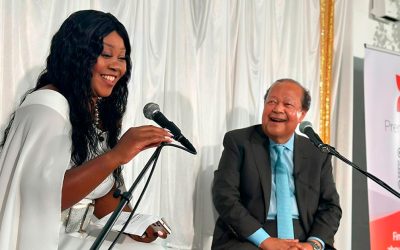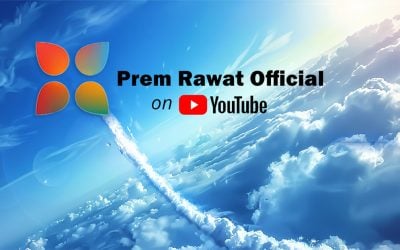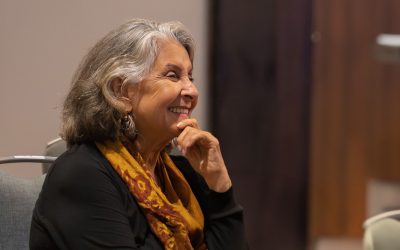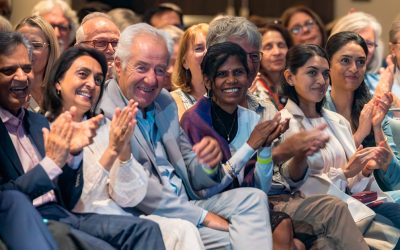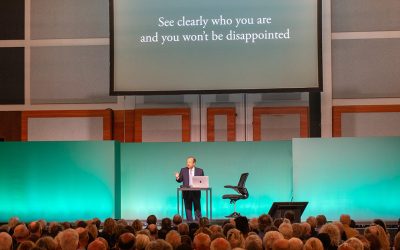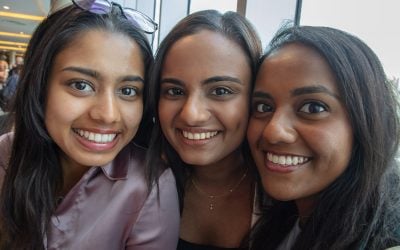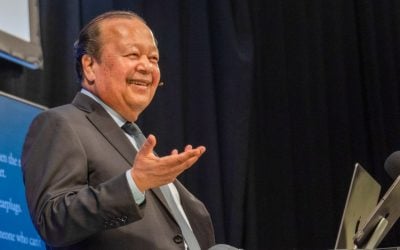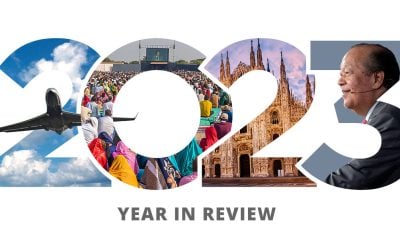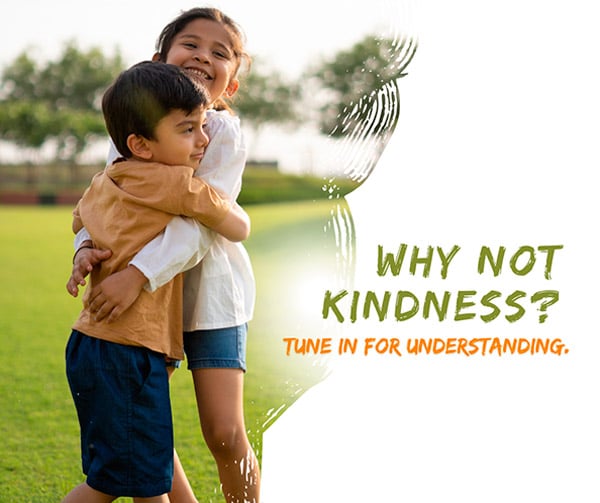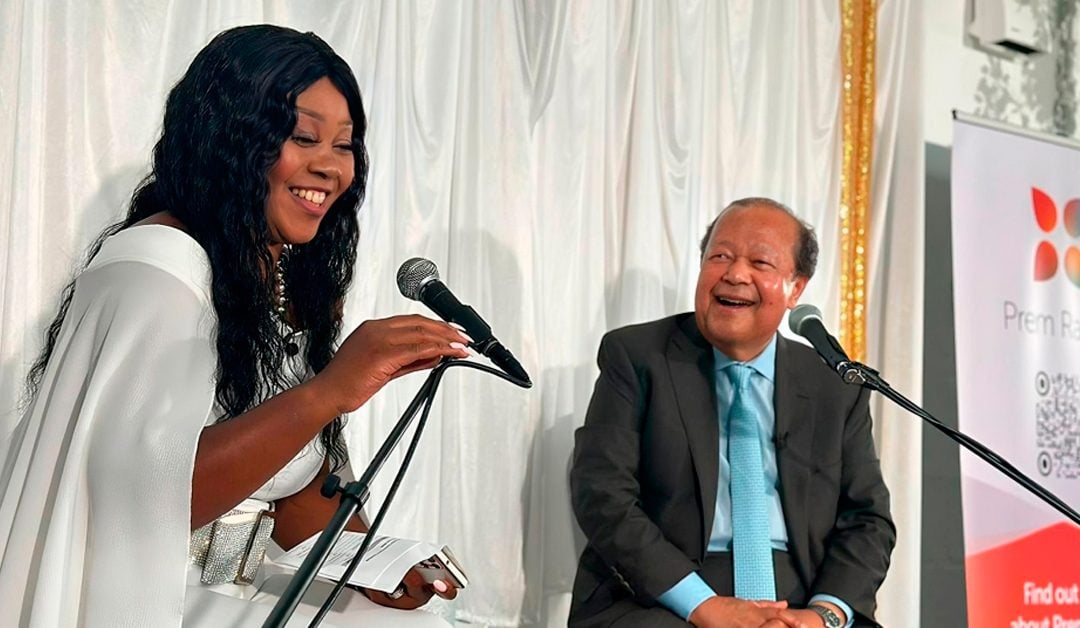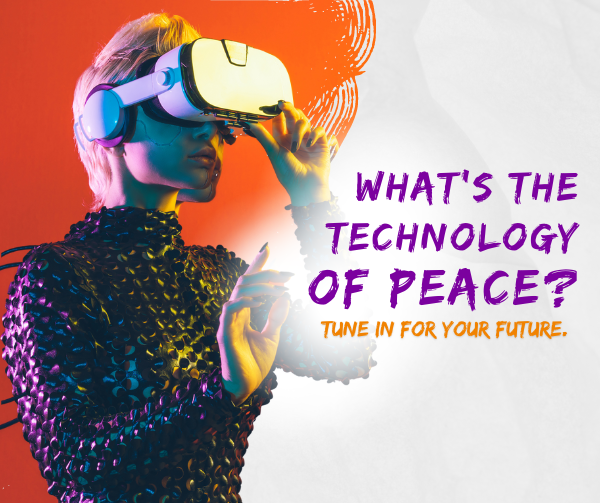Produced independently by Celebrate Life CIC, the documentary tells the stories of five people in London: EJ, a young man drawn into gang culture from an early age; Lorraine, a grieving mother who lost her son to knife-crime; Gerald, founder of Impact Brixton, who learned to navigate one of the city’s most dangerous neighborhoods after emigrating from Ghana; Errol, a repeat offender with 74 previous convictions; and Nate, a former gang member who was brutally stabbed by a childhood friend.
Their compelling stories are woven together by Kaysen, a teacher who has dedicated her life to supporting young people.
Extremely powerful.
A story of hope and redemption that no matter how desperate our circumstances,
there is a light if we are willing to see it.
– Deepak Sardiwal, Lambeth Councillor
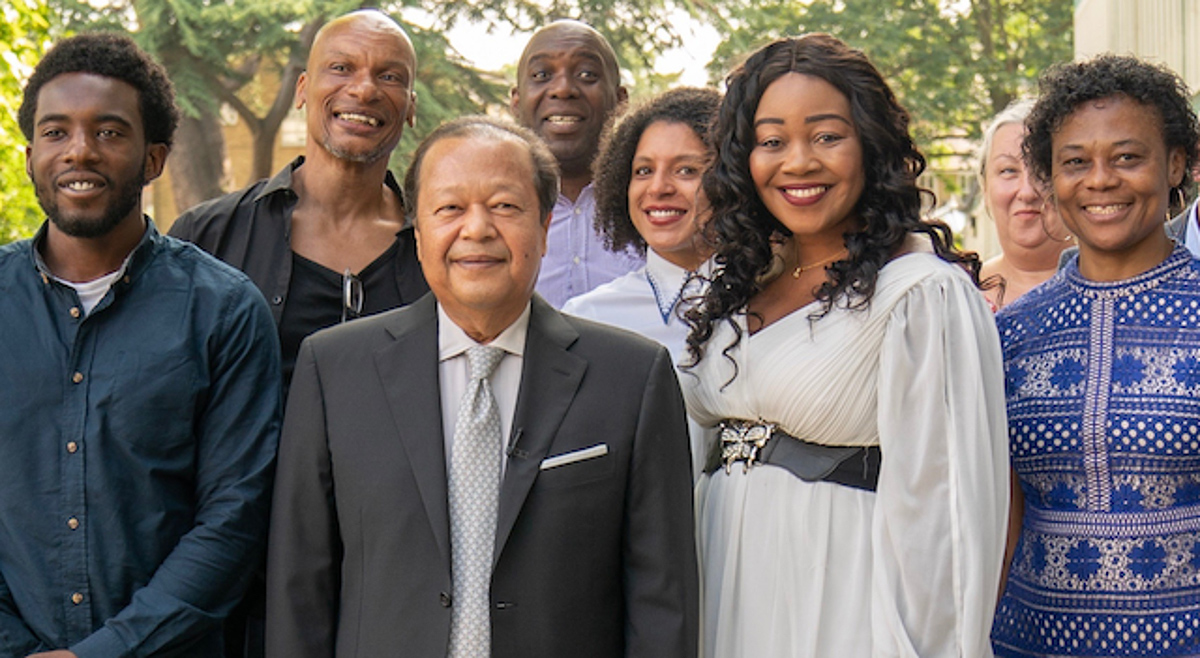
Prem Rawat with several people featured in the film. Photo by Mehau Kulyk.
Adding a unique perspective to the documentary is inspired commentary by peace educator, Prem Rawat, founder of the Peace Education Program. His innovative series of video-based workshops helping people discover their own inner strength and personal peace, including two of the people featured in “Power to Change”, continues having extraordinary impact in underserved communities all around the world.

This film opened my eyes. One thing about this world is that it’s a lifelong learning process. You learn every day. No one is born a criminal.
Mayor of Lambeth, Cllr Pauline George
A Short Interview with the Celebrate Life Team
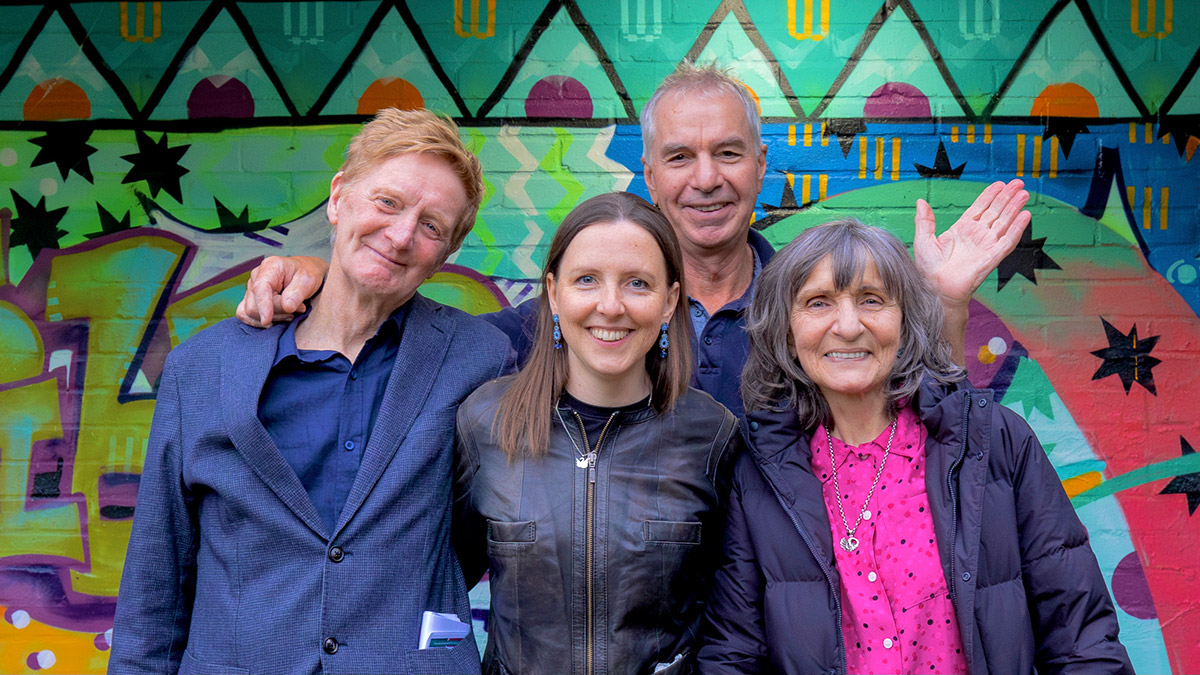
The Celebrate Life team: Wallee Mc Donnell, Wendy Lewis, Rob Dunford and Roni Redmond.
Photo Julia Cleaver.
What did the four of you learn from the project?
Wendy: The whole project has been a learning curve, from all the practical aspects of making a documentary to learning about what goes on in the city I live in, which can sometimes feel like another world. Probably the most important thing I’ve learned is that the need for peace and the ability to find it within ourselves is universal. Even though outside circumstances can be very different, on the inside we all have a lot in common.
Roni: Sharing our stories makes us feel part of a community and not so alone. Speaking about how we have overcome loss and challenges can be part of the healing process and gives us all hope for the future.
Wallee: Many people feel worn down by a lack of inspiration, not knowing where to turn to, and this leads to a sense of hopelessness. “Power to Change” seemed to unleash a need lying dormant in those who came to see it, a sense of hope, which they then expressed.
Rob: When we started initial filming for “Power to Change,” none of us really understood the massive team effort needed and just how long it would take to finish. I must have watched the documentary a dozen times, and each time I get a thrill from seeing what we created. This documentary is like a trojan horse; people got drawn in by the characters and their life stories, but then every so often we see clips of Prem Rawat with his message of peace and that offers people the chance to make a connection between problems and a solution.
Inspiring! Thought-provoking! Uplifting!
The stories in “Power to Change” rang true to me. From great tragedies people were able to work together and heal themselves.
Here’s to the beauty and power of forgiveness
and community coming together!
– Youth Worker, London
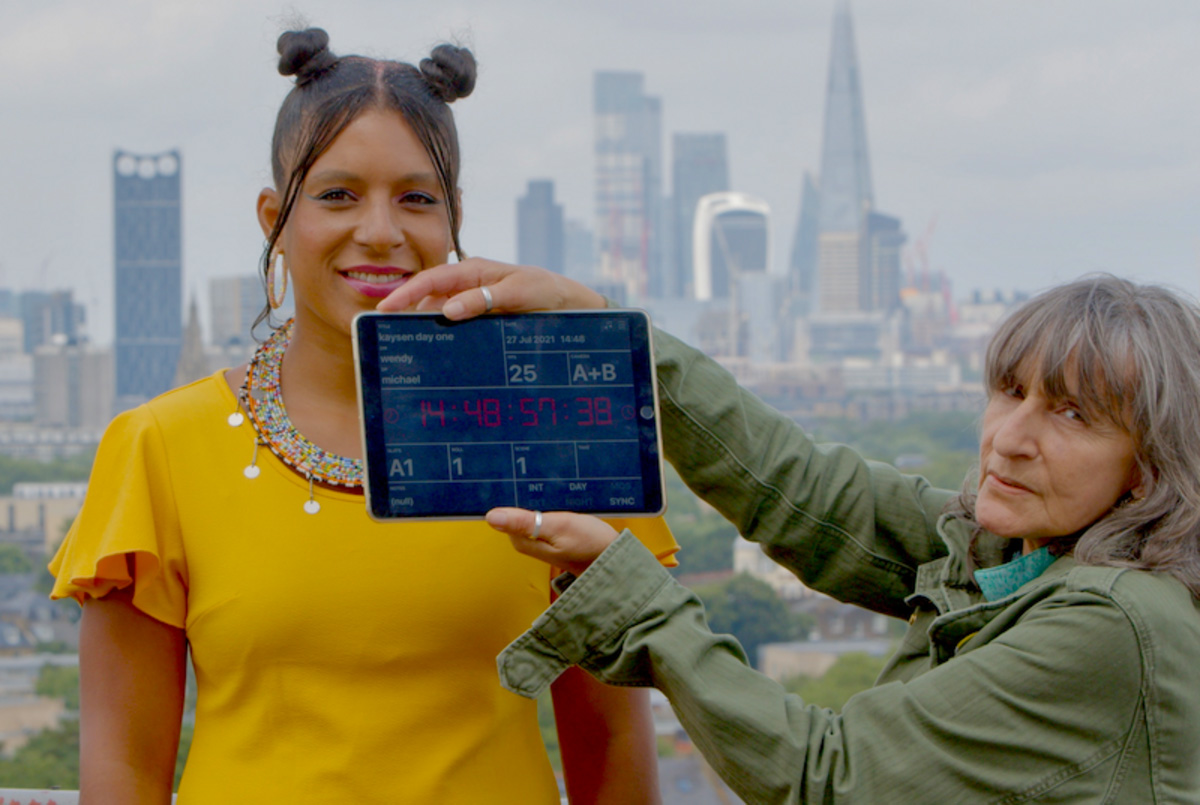
Filming in Brixton with presenter Kaysen Asante and Roni Redmond.
What is the relationship between Peace Education Program and the documentary?
Wendy: Two of the people in the film went through the Peace Education Program while in prison and talk about how it was a turning point in their journey.
What is Prem Rawat’s relationship to the project?
Wendy: Prem Rawat attended two of the events featured in the documentary. There he met some of the people in the film. Excerpts from these events are woven throughout “Power to Change,” featuring themes of peace, hope and overcoming trauma.
Roni: Prem is another person who has garnered wisdom from his life experiences and shares it freely, so he adds his own brand of sugar and spice to the documentary.
Wallee: The film would not have worked without the segments where Prem is featured. This is crucial, lifting the message of the film and giving the inspiration for how to move on, regardless of what’s happened on the journey of one’s life.
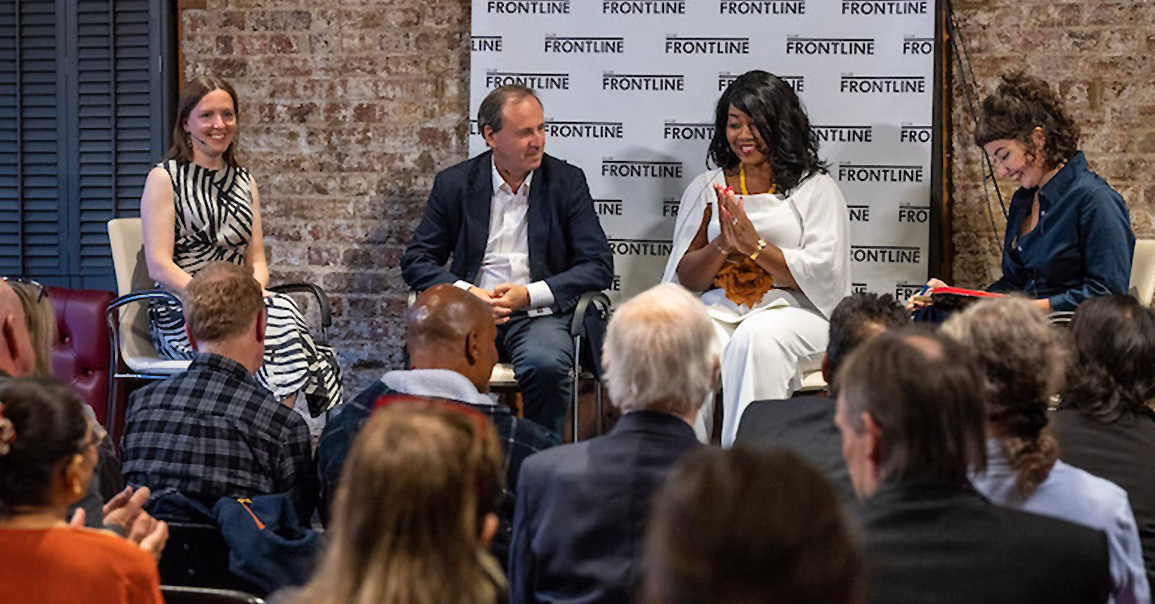
Screening of Power to Change at the Frontline Club in Paddington. Photo: Nitesh Mistry
What are your plans for future screenings of the film?
Wendy: It’s been an amazing journey with the film so far. We’ve screened it in cinemas big and small and taken it from prisons to Parliament, colleges to community centers. Earlier this year we were invited to the 6th World Congress of Probation and Parole in The Hague to screen the film for an international delegation. After two and a half years of screenings, we are happy to share “Power to Change” online and let it fly across the world! The film is subtitled into 16 languages.
Roni: We’ve had a good response from teenagers and would welcome more screenings in schools and colleges, especially in disadvantaged areas where the stories in the film resonate on a personal level.
Wallee: We continue to receive requests to show the film in London, around the UK, across Europe, and the US too. It also has a lovely tie in with the Peace Education Program. Two of those featured in the documentary speak about the course and how much they got out of it. In some settings, we’ve had requests to show the film and then proceed with the Peace Education Program.
How can people support your work?
Wendy: The documentary was made through crowdfunding. We are now raising funds for several short films, including animations of Prem Rawat’s stories. If people want to contribute to our work, they can click here. They can also subscribe to our mailing list.
A beautiful documentary. From sadness and tragedy came inspiration. I felt empowered watching it, instead of hopeless
Apithanie Fraser, Bay Tree Centre (refuge for women and girls)
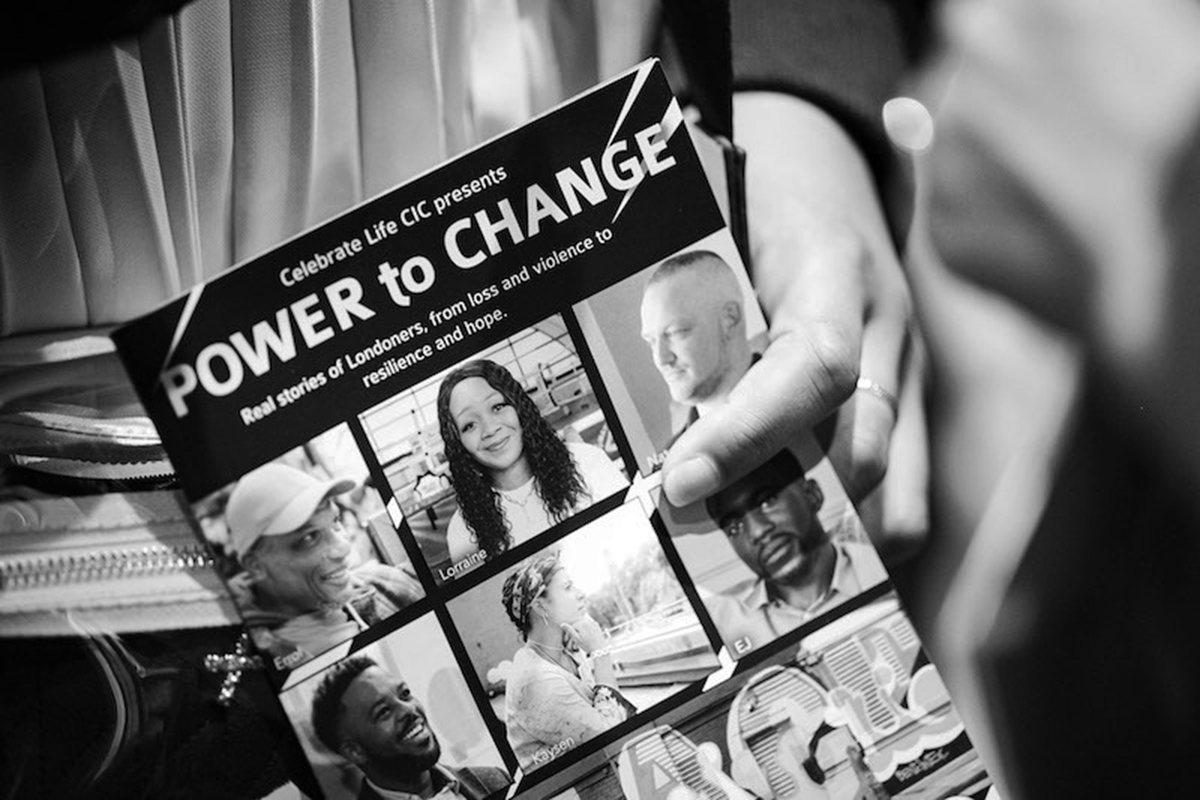
The Power to Change brochure. Photo: Nitesh Mistry
Since the “Power to Change” documentary was filmed, Prem Rawat’s work in London to help people impacted by violence has continued. He recently met with bereaved families, community activists, artists and at-risk youth at a community center. Learn more.
Related articles and links
Prem Rawat Launches Peace Education Program at Community Center in London
Prem Rawat has been touring the world helping people understand that peace is possible ever since he was 13 years old....
The Latest and Greatest on Prem Rawat’s Official YouTube Channel
Since 1961, when Prem Rawat first began sharing his message of peace at the age of four years old, he has used a wide...
The Freedom of Now
The essence of what Prem Rawat is offering to people is very simple: the understanding and experience of peace that...
See Clearly Who You Are
“See Clearly Who You Are” is a six-minute video excerpt from Prem Rawat’s Understanding More™ Focus Session i...
Be Mesmerized by Existence
“Be Mesmerized by Existence” is an 8-minute video excerpt of Prem Rawat’s “Understanding More...
Do You Know Who I Am?
“Do You Know Who I Am?” is 3-minute video excerpt from Prem Rawat’s Understanding More™ Focus Session in Fort...
Searching for the Divine
Searching for the Divine” is 5-minute video excerpt from Prem Rawat’s
Understanding More™ Focus Session i...
Prem Rawat’s South American Tour
During the month of March, Prem Rawat traveled to Mexico City and five cities in South America (Buenos Aires,...
A Master Class of the Peace Education Program with Prem Rawat in Cusco, Peru
Prem Rawat conducted a master class of the Peace Education Program in Cusco, Peru. Over 80,480 students and teachers ...
Living Consciously
The essence of what Prem Rawat is offering to people is very simple: the understanding and experience of peace that...
The Strength of the Heart
The essence of what Prem Rawat is offering to people is very simple: the understanding and experience of peace that...
Prem Rawat’s 2023 Year-in-Review
2023 was an extraordinarily active year for Prem Rawat and his continuing efforts to let people know that peace is no...


